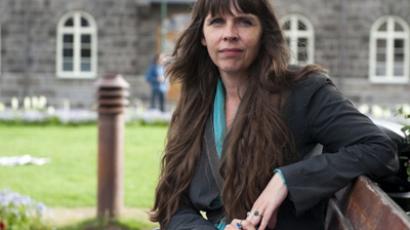‘Vote against euro’: Icelandic center-right opposition wins in parliamentary poll
In the Iceland parliamentary polls, the center-right opposition party has emerged victorious, capturing 26.7 percent of the vote. The Social Democrats, who steered the nation through an economic crisis and towards EU membership, have been ousted.
With a final count of nearly 194,000 valid votes, the Independence Party won 19 seats, and will now unite to form a coalition with the agrarian-centrist Progressive Party, which won 24.4 percent of the vote and 19 legislative seats.
"We are ready to lead the government," AFP cites
Independence Party head Bjarni Benediktsson as saying in a
televised debate, adding his was the party "with the most
votes."
In the 2008 elections, the Independence and Progressive parties lost to the Social Democrats, their main rivals this year, following a massive economic collapse.
The new coalition is “against joining the euro, and that’s what the Icelanders are voting for now,” Harlan Green, editor of Popular Economics.com told RT. “There are some sticking points, but I think the Icelanders just said they don’t want to join the euro, they’re doing quite well with their krona.”

The crisis in Iceland, which led to skyrocketing unemployment, bankruptcies and widespread popular protests, is far from over even after five years, Green said, though the situation has improved slightly.
“It takes a long time to recover during such a serious recession, some call it a depression for Iceland. The fact is that their three largest banks now have seven quarters of GDP growth, 2.5 percent, something like that. Tourism is back: In fact, they have quite appreciable inflation now because the consumers’ incomes are rising, and they allow it to happen. Because of all these issues, they’re on the path to recovery, but certainly, they aren’t there yet.”
Iceland's path should have been mimicked by other struggling European powers, Green explained: “If Greece had known better, they’d probably would have dropped out of the euro, they should have gone back to their drachma... [Icelanders] are very adventuresome, and they’re willing to take a chance to keep their own independence.”














